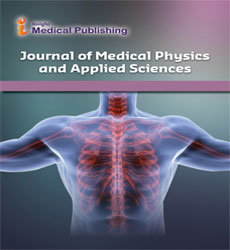Applying at a distance of meditation Tong Len on a group of cancer patients to measure the psychological effects
Gioacchino Pagliaro
| Gioacchino Pagliaro1,2,3* |
| Corresponding Author: Gioacchino Pagliaro,Director U.O.C. Psychology Hospital, Department of Oncology, Ospedale Bellaria, AUSL Bologna, Italy. Tel: +390516225111 E-mail: vivek03sharma@rediffmail.com |
| Received: November 27, 2015 Accepted: November 28, 2015 Published: December 08, 2015 |
| Citation: Pagliaro G. Applying at a distance of meditation Tong Len on a group of cancer patients to measure the psychological effects. Insights Med Phys. 2015, 1:2. |
| Related article at Pubmed, Scholar Google |
Introduction
The Tibetan medicine tradition considers Tong Len meditation an essential therapeutic tool that can be used for self-healing and/or to heal others. To date, scientific papers have not yet investigated the distance effects of Tong Len meditation performed by a group of meditators upon a group of patients affected by cancer-related anxiety, depression and stress. So far, some studies revealed the existence of distant healing effects when there are empathic connection and deep acquaintanceship between healers and recipients [1]. This research, by contrast, inspects the presence of a distant psychological healing effect without any empathic bond between meditators and patients. The present paper is a doubleblind randomized controlled trial on 103 cancer patients (7 males and 96 females) that are receiving treatment at the Oncology Department of Bellaria Hospital (Bologna, Italy). All patients are at least 18 years old and they don’t need psychological treatment, according to the oncologist’s judgement. The prevalence of women in the sample is legitimized because this Oncology Department treats mainly breast cancers. The main objective of this research is to evaluate a distant healing effect of Tong Len meditation on stress, anxiety, depression, fatigue and self-perceived quality of life in cancer patients. 12 meditators performed Tong Len in aid of 52 patients randomly selected as experimental group; while the control group is composed by the remaining 51 patients do not receive any treatment. Patients and meditators do not know each other’s. All patients completes POMS [2] and EQ-5D [3] questionnaires before treatment (T0), after 2 (T1) and 3 months of treatment (T2) and 1 month after treatment cessation (T3). The research shows that distant Tong Len meditation can produce a certain overall psychological gain for the entire sample: the improvement was already evident by the first time-point (T1), and it constantly last until the end of follow-up period. Therefore, it may be interesting to verify the stability of this improvement with further studies. A tendency to improve occurred in both groups in the self-perceived quality of life, derived from the Visual Analogue Scale (VAS) of the EQ- 5D questionnaire, and in POMS scores (anxiety/tension, anger/ hostility, tiredness/apathy and confusion/bewilderment, vigor/ activity). The factor depression/despondency statistically changed only in treated patients, although this enhancement was not likewise significant in a clinical sense. These psychological improvements detected by POMS and EQ-5D scales in the whole sample probably reflect a potential “white lab coat effect”. The benefit could also be explained by psychological processes that occur when patients believe to be in the treatment condition and they put their trust in the therapy. However, this study does not provide sufficient evidence supporting an efficacy of Tong Len meditation in distant psychological healing compared to a control condition. Further studies should replicate this research performing various measurements also on senders, because they are also scientifically relevant participants: meditators and patients are “all-in-it-together” and they both need to be studied. Nevertheless, the benefit on both groups raises interest on indepth analysis and evaluation of distant meditation on cancer patients to mitigate psychological problems related to their disease.
References
- Harris WS, Gowda M, Kolb JW (1999) A randomized, controlled trial of the effects of remote, intercessory prayer on outcomes in patients admitted to the coronary care unit. Arch Intern Med 159: 2273-2278.
- McNair D, LorrM, Droppleman L (1992) Profile of Mood States Manual. North Tonawanda NY Multi-Health Systems.
- EuroQol Group(1990) EuroQol-a new facility for the measurement of health-related quality of life. Health Policy 16: 199-208.
Open Access Journals
- Aquaculture & Veterinary Science
- Chemistry & Chemical Sciences
- Clinical Sciences
- Engineering
- General Science
- Genetics & Molecular Biology
- Health Care & Nursing
- Immunology & Microbiology
- Materials Science
- Mathematics & Physics
- Medical Sciences
- Neurology & Psychiatry
- Oncology & Cancer Science
- Pharmaceutical Sciences
